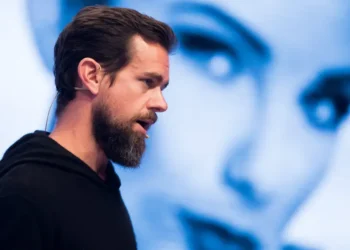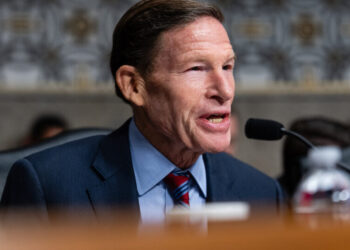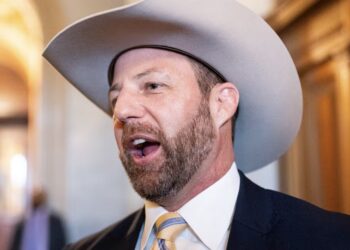Satellite photos show California’s sudden snowpack meltdown: Now you see it, now you don’t
Just weeks after major storms brought snow to the Sierra Nevada mountains, a winter heat wave has all but eliminated...
Trump removes DHS Secretary Kristi Noem after controversial tenure
President Donald Trump said Thursday he is replacing Homeland Security Secretary Kristi L. Noem, a move that came amid mounting...
Trump’s Beauty Queen Under Investigation by Florida Bar
The president’s former lawyer is under a microscope for her on-the-job behavior. Former federal prosecutor and beauty pageant contestant Lindsey...
Block employee says the company dangled a 75% pay raise to get her to stay after layoffs — but she decided to quit
Jack Dorsey Rolf Vennenbernd/picture alliance via Getty ImagesNaoko Takeda wrote on LinkedIn that Block offered her a pay bump and...
Senate Democrat Pushes to Investigate Noem for Perjury
Senator Richard Blumenthal, Democrat of Connecticut, said on Thursday evening that he would press for a perjury investigation into Kristi...
‘Unconscionable’: Fury as investigation finds US likely killed 175 in Iran school strike
Political analysts and observers were outraged on Thursday after an investigation determined that the U.S. was likely responsible for a...
The Pentagon Officially Notifies Anthropic That It Is a ‘Supply Chain Risk’
The Defense Department has officially informed Anthropic that it has labeled the artificial intelligence company a “supply chain risk,” which...
Lindsey Halligan faces investigation by Florida Bar
Lindsey Halligan, the former interim U.S. attorney for the Eastern District of Virginia, is facing an investigation by the Florida...
WSJ celebrates as Kristi Noem ‘finally’ gets the axe
The Wall Street Journal editorial board lauded the dismissal of Homeland Security Secretary Kristi Noem after a year of chaos...
Welcome to Maastricht, Where All Things French Flourish
People who live in Maastricht like to say that theirs is the most French of Dutch cities. It is a...














